Onco-cosmetics from the scientific shelf
Three chemists from the Nicolaus Copernicus University have developed the formulation of skin care cream for people after melanoma treatment whose skin needs moisturizing and elasticizing. The cosmetic product will be launched into the market in a few weeks' time, but it has already been awarded on a number of specialistevents.
Melanoma is one of the most malignant skin tumors which attacks people from different parts of the world. Only in Poland there are around 2.5 – 3 thousand reported cases both in males and females and 1.5 thousand of which are disseminated or advanced stage cases.
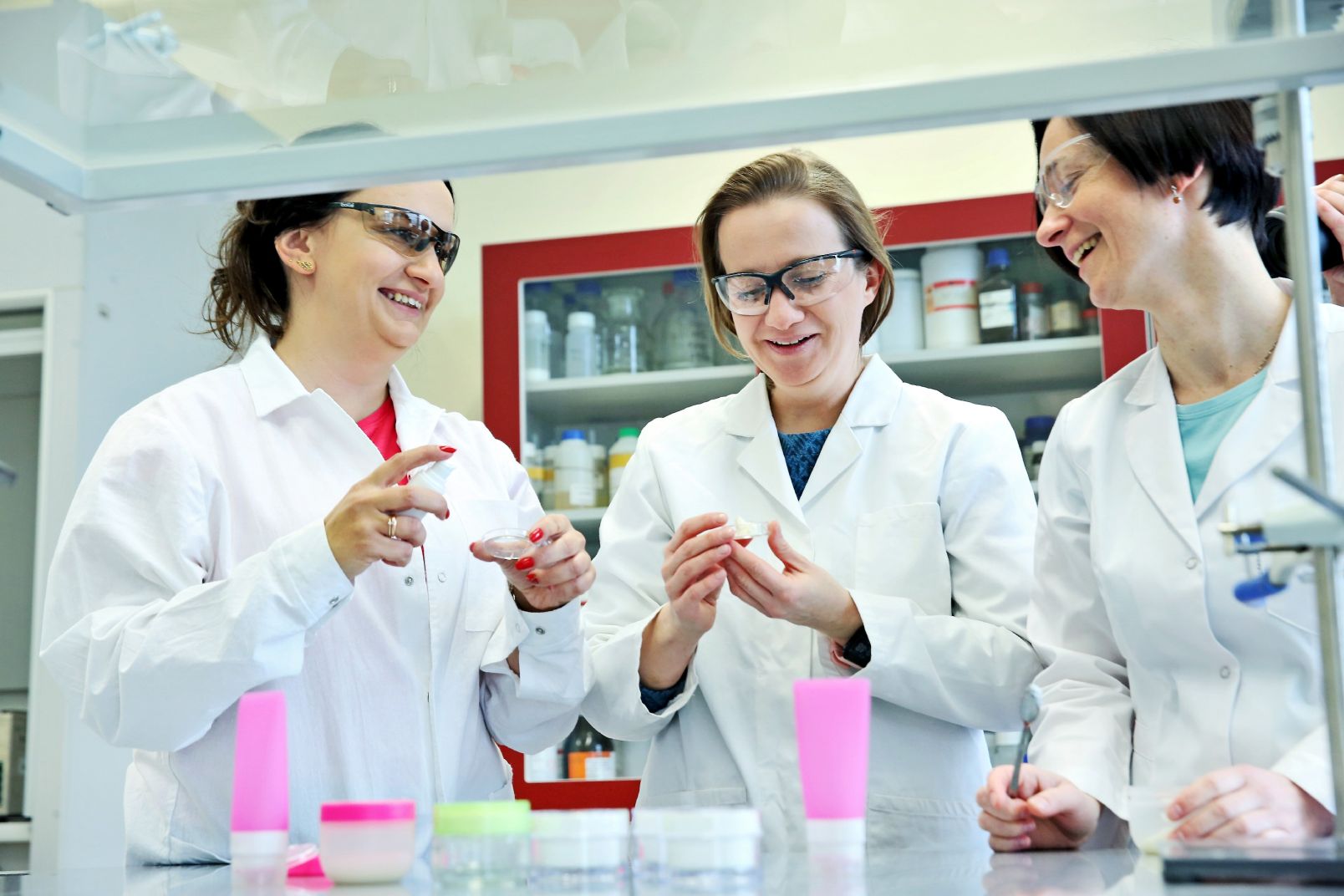
photo: Andrzej Romański
Doctors estimate that the number of cases is doubled every ten years. According to on-line data published by regional sanitary - epidemiological stations, people with fair complexion, red or blonde hair, blue eyes, freckles, a big number of melanocytic naevi and moles in frequently irritated skin areas are particularly susceptible to the disease. The same concerns people who experienced sunburns, especially in childhood, those with low tolerance to sunlight, those who poorly or never get suntanned, those who spend an hour or more in full sunlight daily, tanning salon customers, and finally, people whose relatives developed melanoma or other skin tumors.
“In the case of tumors in early stages, the lesion with a margin of healthy tissue is removed, explains dr Justyna Kozłowska from the Department of Biomaterials and Cosmetic Chemistry, NCU. After the surgical procedure, the treated area is covered with antiseptic dressing and bandaged. The tissue undergoes a natural regeneration process. Thus, after the lesion has been removed, proper skin care routine is particularly important. The skin needs intensive moisturizing to build up its epidermal barrier and provide elasticity."
In Poland, there are no formal conditions, procedures, or legal requirements for cosmetic products to be labeled as oncological. Nevertheless, a group of cosmetics was labeled “oncological cosmetic products" not because of their ingredients or activity but to determine the target group of users, i.e. those during or after oncological treatment.
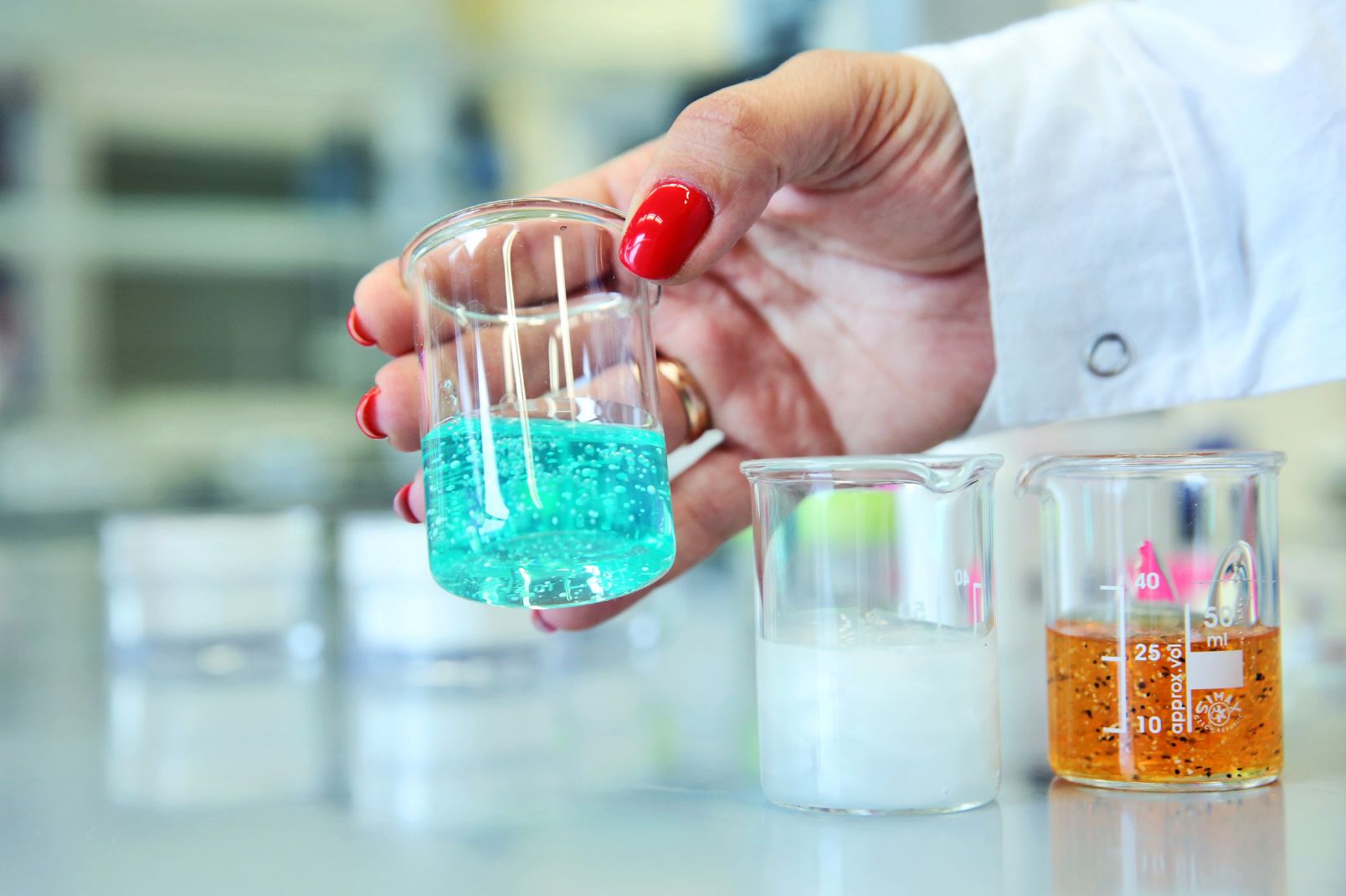
photo: Andrzej Romański
“Having analyzed the market, we noticed that when it comes to lists of ingredients, products falling into this category only slightly differ from other regular skin care creams or conditioning – moisturizing emulsions, says dr Beata Kaczmarek–Szczepańska from the Department of Biomaterials and Cosmetic Chemistry, NCU. It is not the matter of evaluating them as good or bad products. I only want to emphasize that the results of their analysis carried out by our specialists proved mostly their moisturizing activity, which is nothing special since most cosmetics have this property."
The idea of developing a specialist cream emerged by Chance. Dr Kaczmarek–Szczepańska was researching natural compounds showing anticancer activities when she came across the one which at the defined concentration inhibits melanoma development. The chemists do not want to reveal the name of the compound.
During the laboratory tests we observed that the compound lowered the viability of melanoma cells and inhibited their proliferation. Healthy cells, however, developed normally, says the chemist. The compounds is natural, of plant origin, already added to cosmetics. According to scientific literature, it shows anticancer activity. Still, it is not a drug and we are focusing on skin care. In fact, we will present an already known raw material from a new viewpoint.
Based on the above mentioned results, the idea of producing a specialist emulsion emerged. Additionally, when a perspective of gaining financial support for further research from the Centre for Academic Entrepreneurship and Technology Transfer, the researchers decided to commercialize the results of the experiment. The University has already applied for the international patent for the main ingredient of the cosmetic product, and the emulsion has already reached the eighth (out of nine) level of technological readiness.
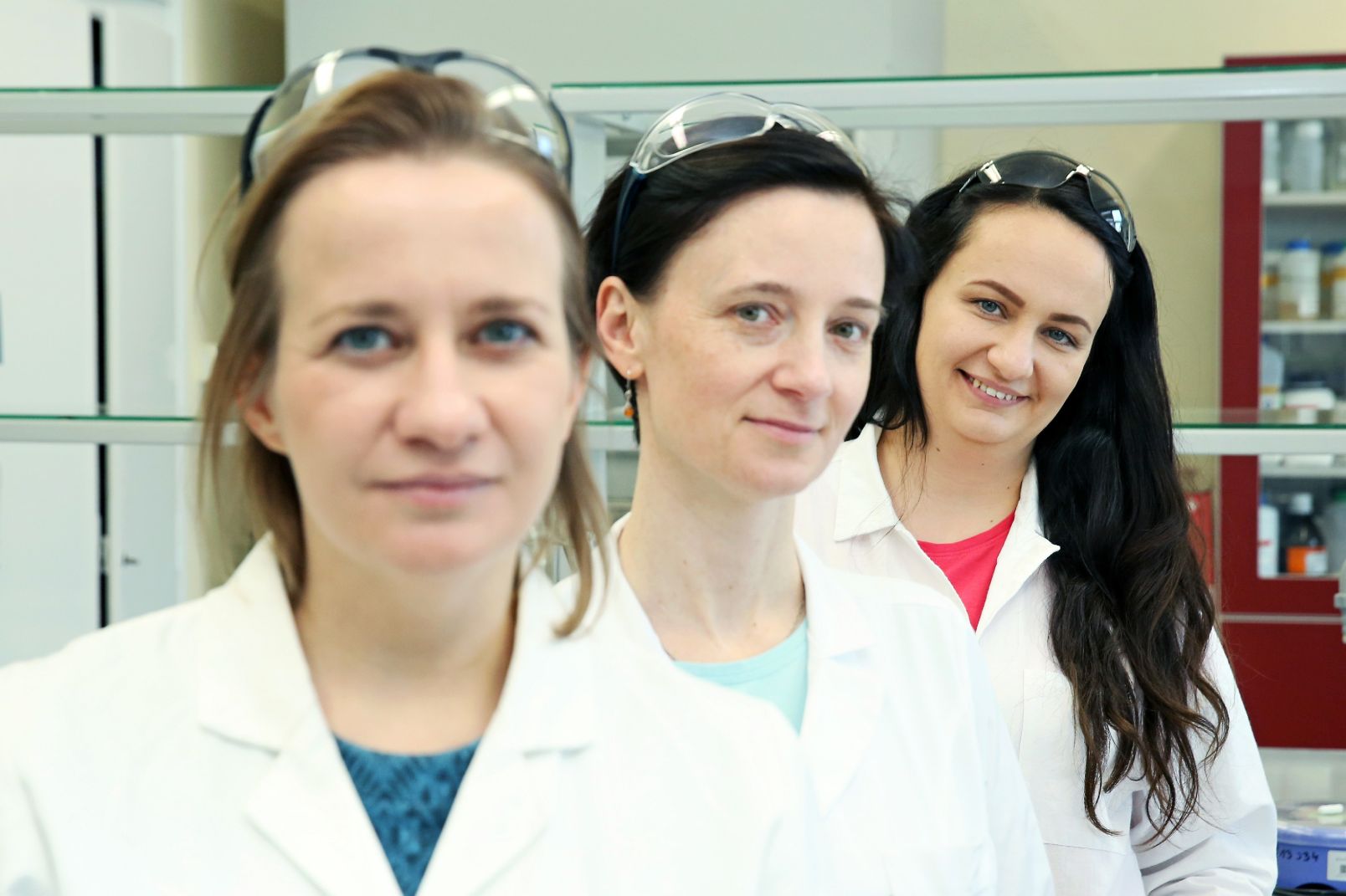
photo: Andrzej Romański
It is the nine-level scale and reaching the ninth level means launching the product into the market, explains dr Joanna Skopińska-Wiśniewska from the Department of Biomaterials and Cosmetic Chemistry, NCU. We are working to reach the goal: we are planning production, designing the label, and thinking of marketing. The aim is so close, but this stage is most difficult for us because we have to coordinate so many issues.
The researchers admit they initiated the project on the fourth level of technological readiness. When they started thinking about commercializing their discovery, they already had the cream formulation, the “prototype", prepared. Then, they had all the required tests conducted by an accredited laboratory, which is necessary for the product safety report. Some of the tests could be performed by the researchers themselves, but they wanted to avoid undermining the credibility of the results.
In the next stages, the chemists defined the target group, commissioned market analysis, recognized competition. They know such competition exists, but their products are prevalently moisturizers, soothing products, but without “the bonus", i.e. the compound present in the preparation developed by the scientists from the NCU.
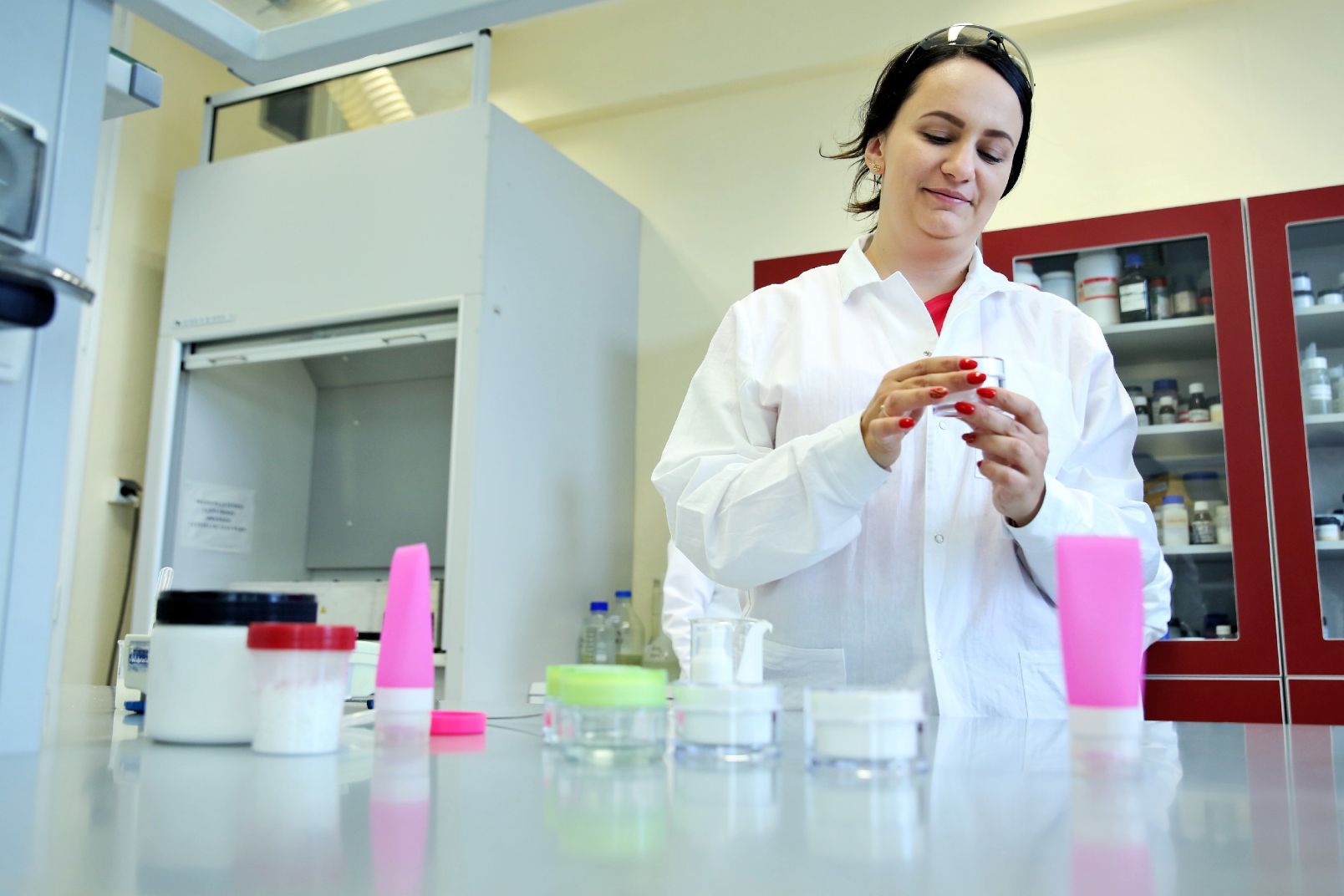
photo: Andrzej Romański
We knew our competition, we had our discovery priced out, we knew our position, and the final step was to decide what we would like to do with the knowledge, says dr Kozłowska. We decided to launch the emulsion into the market as a company.
“The product will not be cheap, mostly because the scientists outsourced the advanced examination of its irritating activity on artificial skin. Due to the costs of such tests, only few products have undergone such procedures, says dr Kaczmarek-Szczepańska. Cosmetics cannot be tested on animals and thus, to prove their safety, test with the use of artificial skin are performed. It is an advantage rather than a requirement as it additionally confirms that the cosmetic does not show irritating effects. Honestly, we have examined every aspect we could and we are sure our cosmetic is safe to people with sensitive skin which needs proper moisturizing.
The product developed by the scientists from the NCU is not a drug and cannot be used in melanoma prophylaxis. Each change on skin should be adequately examined and consulted with a specialist. However, the included compound inhibits the growth of melanoma. So, those who had their lesions removed and those who are genetically burdened with the disease can be interested in using the product. Patients after radio- and chemotherapy whose skin is very sensitive, delicate and dry as a result of the treatment will certainly be among our customers.
Such treatment contributes to the feeling of discomfort in patients, and our product can reduce it, explains dr Skopińska-Wiśniewska. The marketing declaration on the packaging will provide such information.
The product can also be used by people without genetic tendencies and lesions. I have compared the samples with those of different commercially available products, and our emulsion shows a really good moisturizing activity, assures dr Kaczmarek–Szczepańska.
The price is affected by costs of raw materials which have recently been changing rapidly. When starting our project we were thinking about completely different amounts, admits dr Skopińska-Wiśniewska. Within the last two years, we have observed a kind of revolution on the market. Every single production stage is becoming more and more expensive, just to mention for example purchasing raw materials, packaging, chemical reagents, utilization and production costs. We have to calculate everything, check the production costs, and finally we will know the final price of the product. “
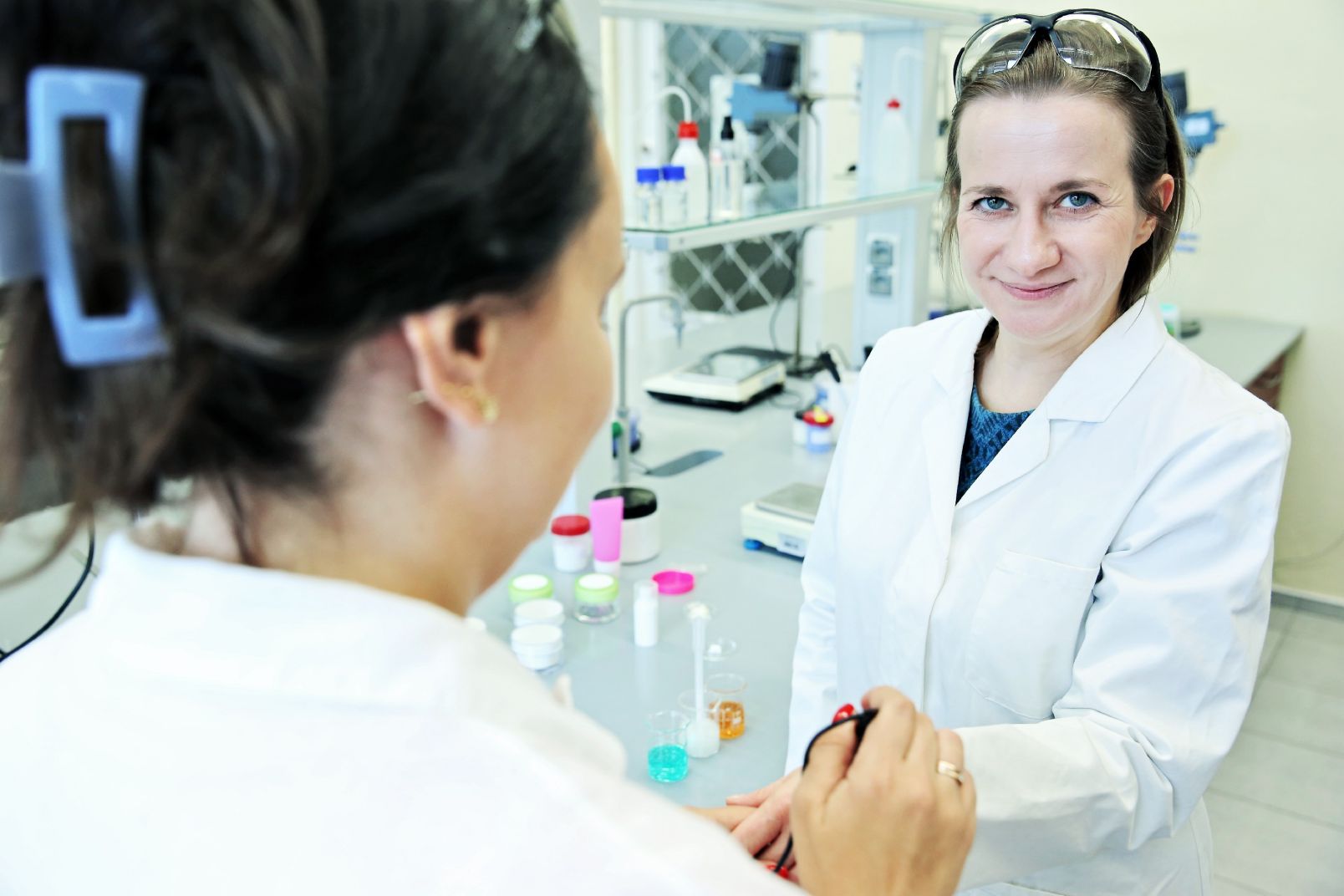
photo: Andrzej Romański
The oncological cream developed by the chemists will be produced and launched into the market by the NCU spin-off company, NatChemLab sp. z o.o., which has signed a contract of license with the University for the exclusive use of the subject of the patent. The emulsion production will be outsourced.
The scientists do not want to sell the cream only on the local market, so it will also be sold online.
Before it could be available in shops, the cosmetic product had to be extensively tested. Most essential are the microbiological tests during which microbiological purity, safety, and the choice of preservatives are checked. Also stability tests, i.e. checking whether the product can be stored and safely applied within a defined period of time, are necessary. Moreover, application tests which show how skin parameters change after using the given product are conducted. It is all described in the EU regulation no 1223/2009 concerning cosmetic products.
“In order to launch the cosmetic product into the market, it has to be registered, supplemented with a safety report , and introduced to the Cosmetic Products Notification Portal. For us, chemists, these formalities are probably most difficult, so we have consulted many issues with experts in this area, says dr Kozłowska."
The cream after oncological treatment is not commercially available yet, but it has already won prestigious awards. Last year, during the E-NNOVATE 2022 international fair, it received the gold medal and the special Best National Innovation Award. Additionally, at the end of the last year, as a University enterprise, NatChemLab was given the title of the Innovation Leader of the Pomeranian-Cuiavian Region.
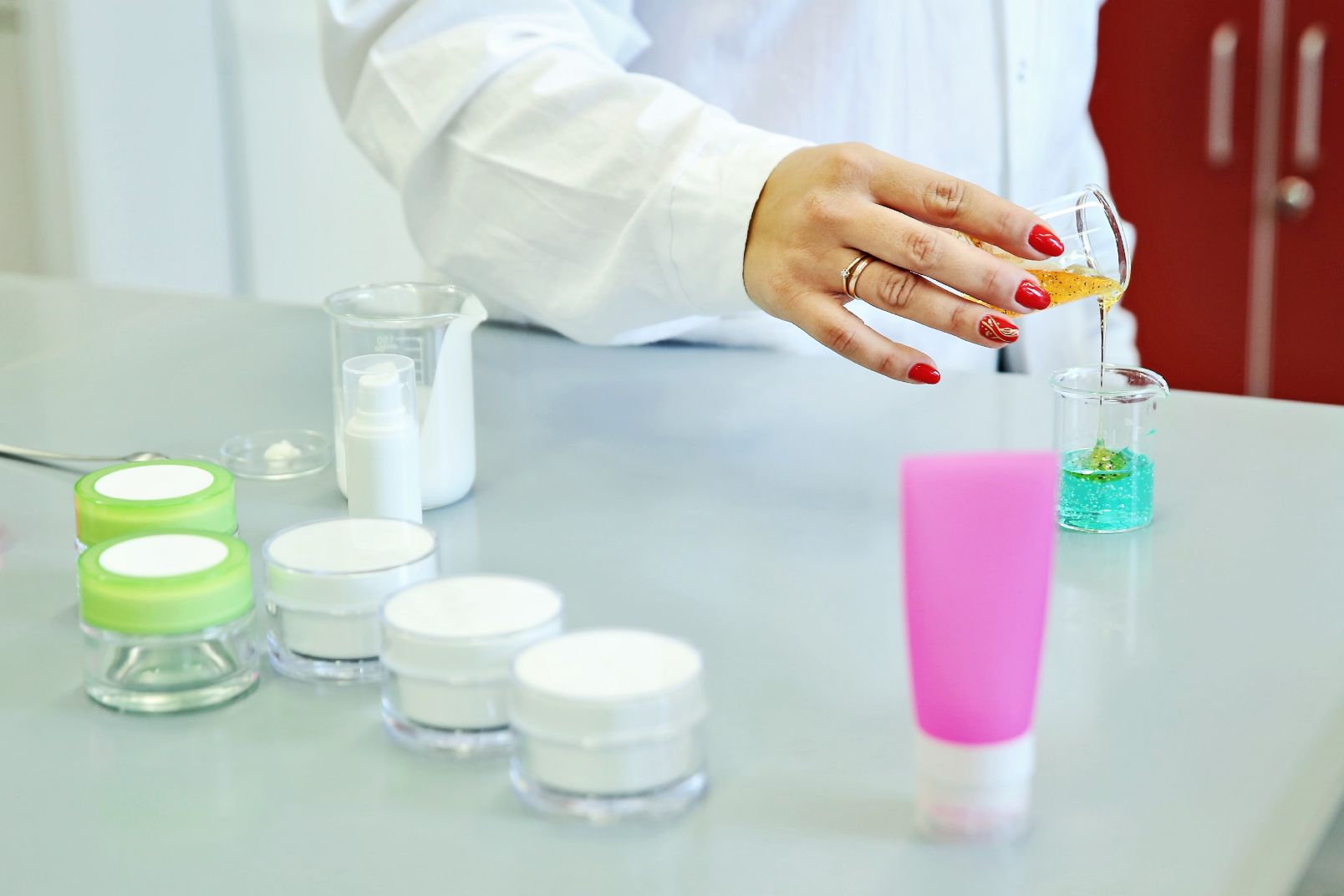
photo: Andrzej Romański
The chemists from the NCU are planning further tasks. The cream which will be available in a few weeks' time is for topical use. The NatChemLab Cosmetics series is to be extended with two more products: the body balm and the toner in the form of a solution, not an emulsion. The new formulas will also be highly specialized because our aim is to implement scientific solutions on the market, assure the chemists. They add that while working on their next products they will care about naturalness, our planet, and the environment. They find the zero waste attitude essential. They also admit they are not interested in the mainstream production, they are looking for new solutions and observing latest trends. The chemists also want to debunk the myths concerning cosmetics. On the company website, they want to reveal the unfair marketing gimmicks.
“We can observe the trend cosmetics producers have recently been using, namely, labeling products as almost completely made of natural ingredients. Noteworthy is the fact that 80% or more of their mass is water, explains dr Kaczmarek–Szczepańska."
“I often ask my student show many cosmetic products they use, adds dr Skopińska-Wiśniewska. On average, the number is 15, and it does not refer to ladies preparing their rich evening make-ups. It concerns a regular student bathroom with 10-12 items. Just think how much packaging it is, how much plastic. We want to initiate the changes.
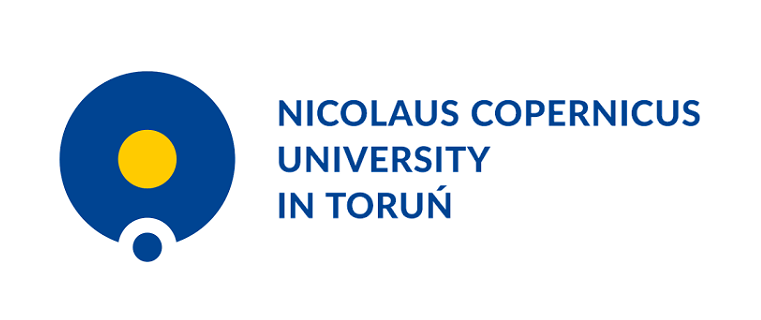 NCU News
NCU News







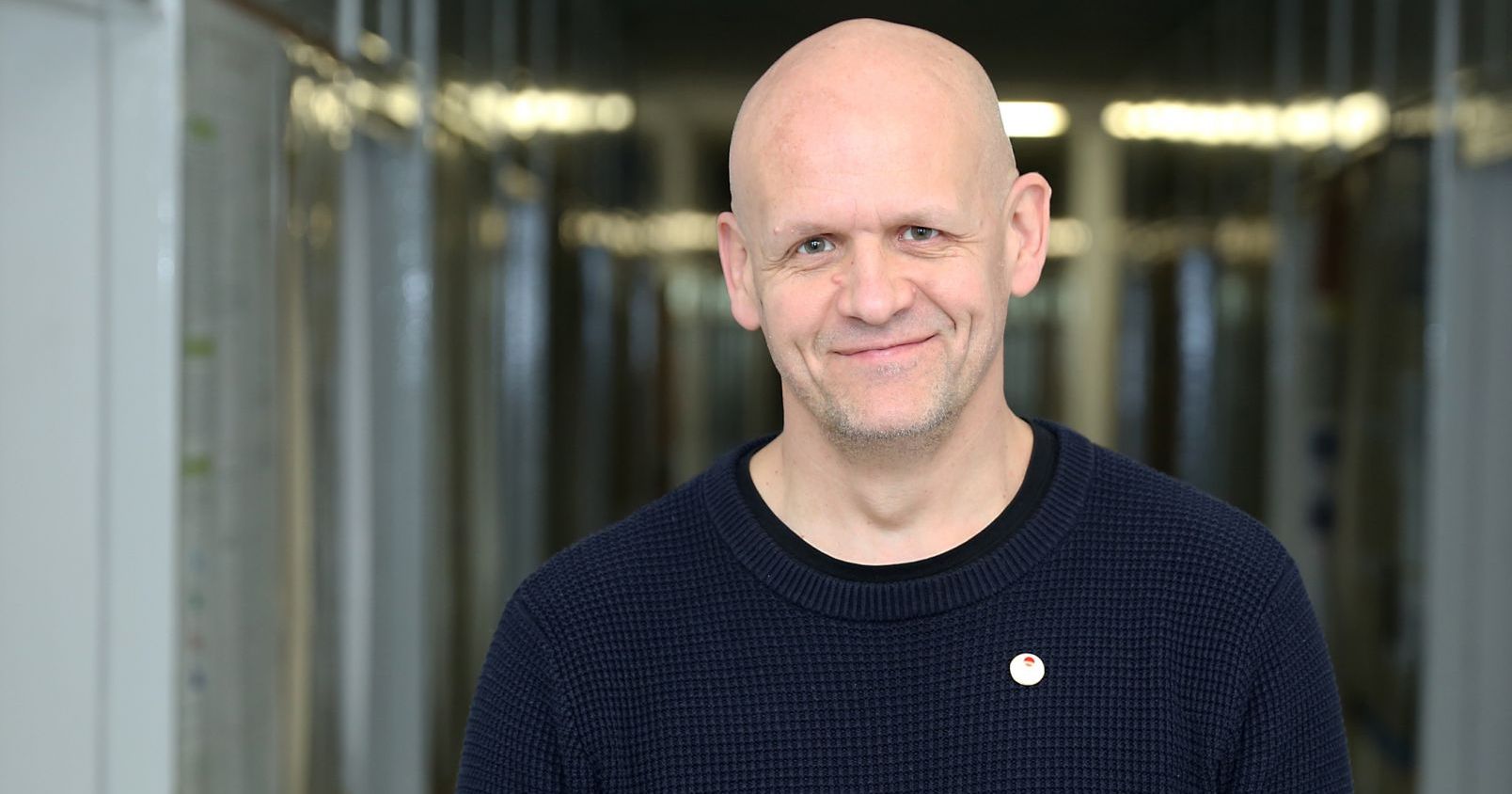 Natural sciences
Natural sciences
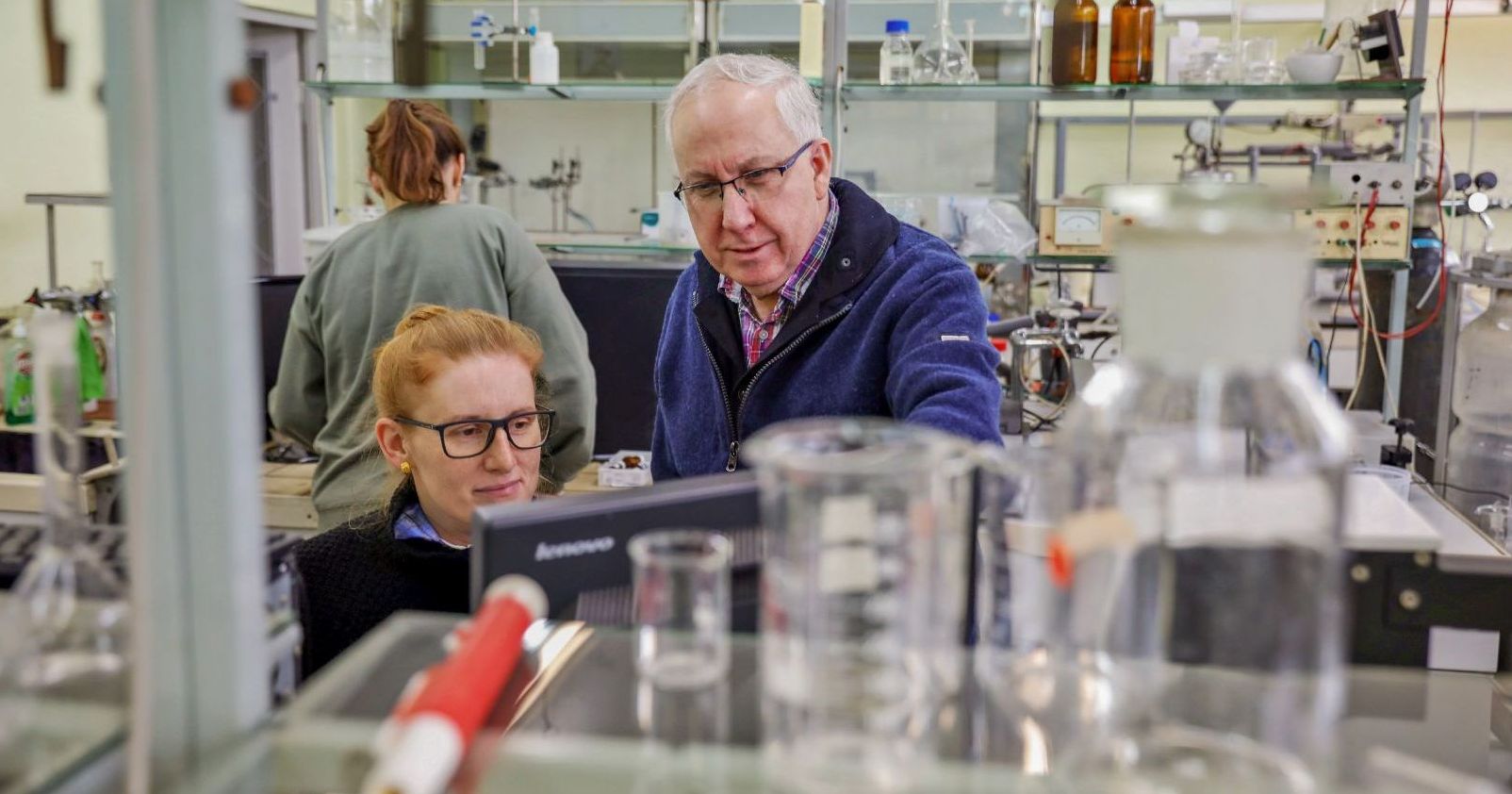 Exact sciences
Exact sciences

 Exact sciences
Exact sciences
 Humanities and arts
Humanities and arts